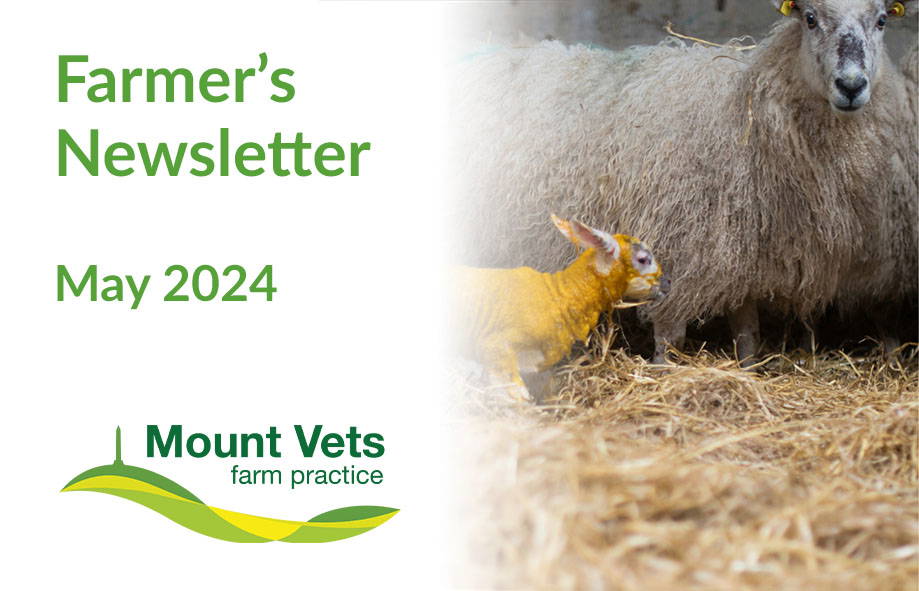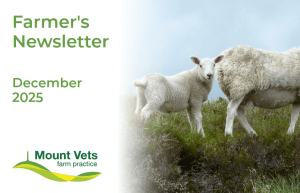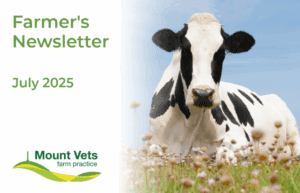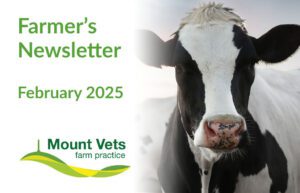May 2024
We hope you have been able to make the most of the little bursts of sunshine we have had over the last few weeks and have found time to catch up on the jobs that couldn’t get done during the vast amounts of rain that we have had.
Here is the latest from our farm team at Mount Vets. If you would like any further advice or would like us to cover something in the next newsletter, please call us on 01823 662286 or contact us here.
We want to hear your feedback… Leave us a review!
We value your feedback and comments and would appreciate if you could take the time to leave us a review! Please follow the link to share your thoughts.
Grass Staggers
Grass staggers (hypomagnesaemia, grass tetany) is a severe and frequently fatal metabolic condition. It typically occurs at times when animals are out at pasture with low grass levels of magnesium (early spring, or autumn) and at times of high body demand for magnesium (lactation or late pregnancy). Cows are unable to store magnesium, so must receive their daily requirements each day. As you can see from the table below, purely grass based diets leave cows at risk if no supplementation is provided.
Components | Requirement by function | Total required daily | Total supplied daily | % balance | |
|---|---|---|---|---|---|
Magnesium (g/day) | Maintenance
16.0 | Yield
16.0 |
27.1
| 20.4 | 75.3 |
Table 1: Daily nutritional requirements for a 600kg cow producing 20 litres milk per day, at 3.1%/L protein and 4.75%/L butterfat cut-offs, compared to nutrients provided from a grazing diet of perennial ryegrass with a 17kg dry matter intake/day.
Values taken from Chamberlain and Wilkinson (2017).
We are all familiar with the down, convulsing cow with staggers, or those that you just find dead in the paddock with scuff marks around them. However, there are some subtle clinical signs that do appear a little earlier and include:
- Restlessness
- Uncoordinated movements
- Muscle tremors
- Excitability and, in some cases, aggressive behaviour
Although more common in adult females, staggers can and has been diagnosed in young, well grown animals that are outstripping their available magnesium through rapid growth.
Magnesium sulphate (Magniject) should be administered under the skin immediately. The cow should be kept calm, covering their eyes and ears helps, for example with a towel. In some cases, we have to sedate them whilst running the magnesium in intravenously, especially if they are thrashing around dangerously.
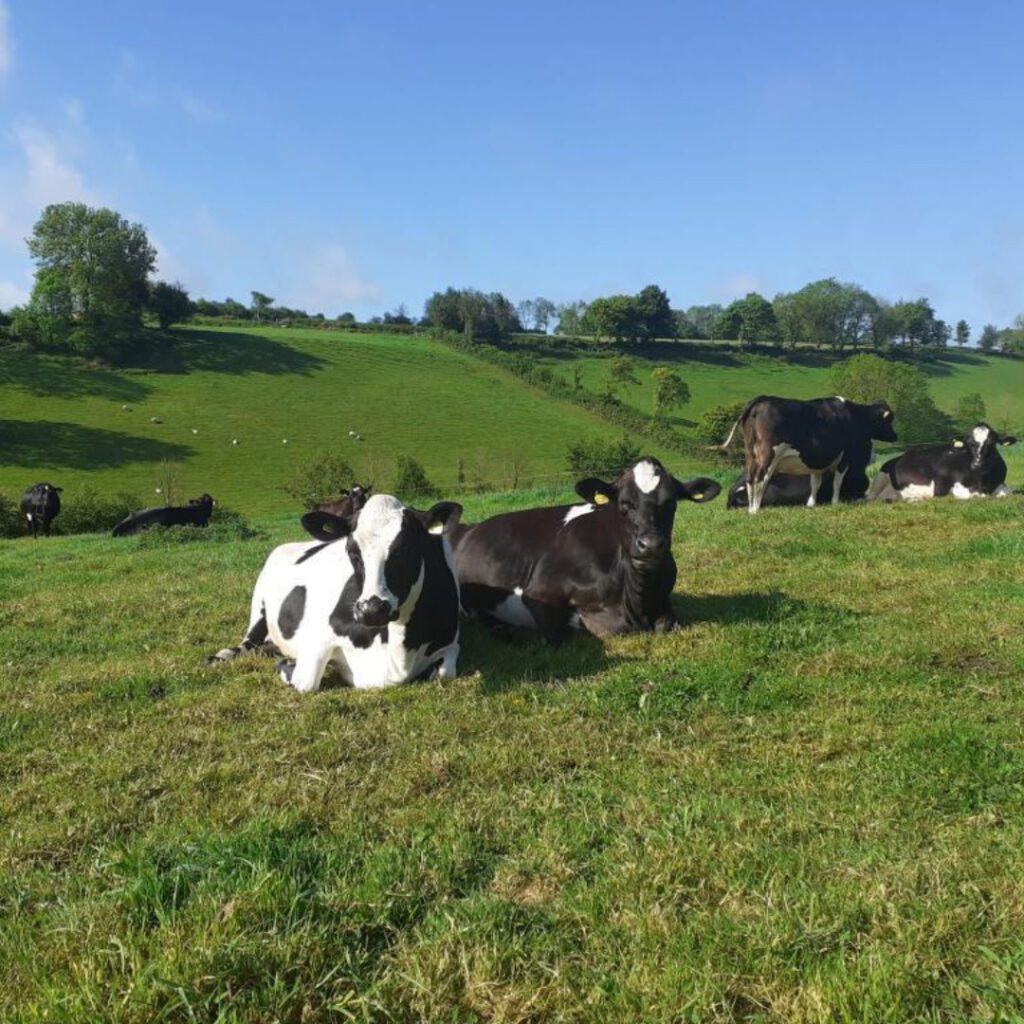
There are several preventative methods to decrease the risk of staggers occurring:
- Boluses
This method is labour intensive – let’s be honest, not many enjoy bolusing cows! But the main advantage is that you know every single cow has had the correct amount of supplementation for the duration of the bolus. Many of the other methods described below rely very much on feed and water intake, which can vary from cow to cow. - Mineral Licks
Although easy to implement, these can have limited success due to highly varied intakes. This can be down to individual cow factors or dominant animals guarding resources. Furthermore, careful measures must be in place to ensure they are wildlife proof. - Buffer Feeding
Buffer feeding can help to aid reduction of clinical hypomagnesaemia cases, especially if the forage has supplementary minerals incorporated. Commonly, ensiled forage has inherently higher magnesium levels compared with fresh forage. - Magnesium Chloride Flakes
This is the most frequent method used by our clients. Doses of about 100g/cow/day are commonly used in the drinking water. This brings the disadvantage that the water will taste bitter, so fencing off natural water sources is required to prevent them seeking water from elsewhere. Also, access to natural water sources does pose a biosecurity risk. The unpalatable nature of magnesium chloride would be further compounded by contaminated water troughs, which causes reduced water intake. Maintaining clean water troughs should be standard anyway to aid yields. Reduced water access can hinder magnesium chloride uptake. It is recommended that 10 cm/cow is available. Aside from this clinical scenario, as said above, limiting water trough access can negatively impact milk yields. - Grazing monitoring
Implementing grazing monitoring would enable more accurate forecasting specific to the farm, rather than relying on generic industry published data. Useful weekly updates are available from Grass Check GB (https://grasscheckgb.co.uk/bulletins). Young, fast-growing swards have a low magnesium content, monitoring would alert you to risk periods of rapid grass growth, allowing for earlier intervention.
If you would like to discuss the prevention of staggers on your farm, then please give us a call so we can tailor advice to your farm.
Unusual Scour Problem in Lambs
Similar to the dwarfism story in last month’s newsletter, we’ve also had another unusual case this month of scour in lambs, that also seems to be a new emerging issue that Starcross has had a few other reports of this winter and spring. The farm in question was about halfway through lambing when suddenly lambs started scouring. These scours often started within the first few days of life, though some affected lambs were a little older. These lambs would often go from apparently healthy with normal dung consistency to a profuse scour and death within 12-24 hours. No amount of antibiotics seemed to save the deaths.
This may sound very familiar for some cattle keepers, as a certain species of E coli, the K99 type, will produce a very similar disease in calves, usually prevented only through vaccination with Bovigen Scour or Rotavec Corona. Luckily, this also sounded familiar to the diagnosing vet, David, who thought to test the dung on one of our calf-side scour test kits. Although we’d never seen this as a problem in lambs, the result came up positive! A quick phone call to Starcross confirmed that this had started to emerge as a new issue in lambs as well. As we have found in calves, this particular E coli is resistant to many of the antibiotics used at lambing time, such as oxytetracycline and amoxicillin. Fortunately, there is one antibiotic that does seem to help the situation and the issue seemed to improve after injecting every lamb at birth with a TMPS antibiotic. This is the only time we would advocate injecting all lambs at birth, as the alternative product, an oral dose of E coli antibodies at birth, is considerably more expensive.
Factors that may increase the risk of this occurring in the flock are high stocking densities, delayed turnout due to bad weather, also calving cows on-site (especially if in the same sheds) or also working on other farms where they have known issues.
Lost in the right direction
Grazing is upon us! Now animals are out, Dr Green does tend to look after most of them well, but unfortunately some still require our attention. Turn out brings its own set of challenges for farm vets, as we often must venture out into the fields to see our patients – most of us have stories of varying hilarity at getting our truck stuck in one field or another, and the humiliation of asking the client having to tow us out… I’ll leave you to guess which of the lads’ trucks is featuring.
It can prove difficult for us to locate you and your animal. I’m sure you’ve all been met with the slightly glazed stare or look of worry when giving directions to your vet (that would be me, couldn’t navigate my way out of a wet paper bag if I’m being brutally honest). This brings me on to the main reason for my article.
Hopefully many of you will have heard of the App ‘what3words’. This was the topic of conversation twice on farm this week, so I thought it deserved the glamourous limelight of a newsletter article. This ingenious App has broken the world down to 3m2 increments, each square on this grid has its own, unique reference phrase of 3 words. For example, our alcove on the wall is “consoles.daydream.tunnel”. Ways it can be used truly are endless, but useful examples include the location of the patient at pasture, field gateways or fridges on farm when we come to drop off vaccines.
The first example of use this week was a farmer directing one of our vet techs to some away ground with no postcode, it was a success, and no one got lost! The second was rather more solemn, but thankfully the emergency services were able to locate the farmer in need promptly and directly, all due to this wonderfully simple, yet effective App.
If I could get you to do one thing from this newsletter today, it would be to download what3words. Hopefully, it will stay tucked away in your phone forever, never to be opened. But if you do need it, for man or beast, at least you’ll have it.
Click the link to access what3words: www.what3words.com
Upcoming courses
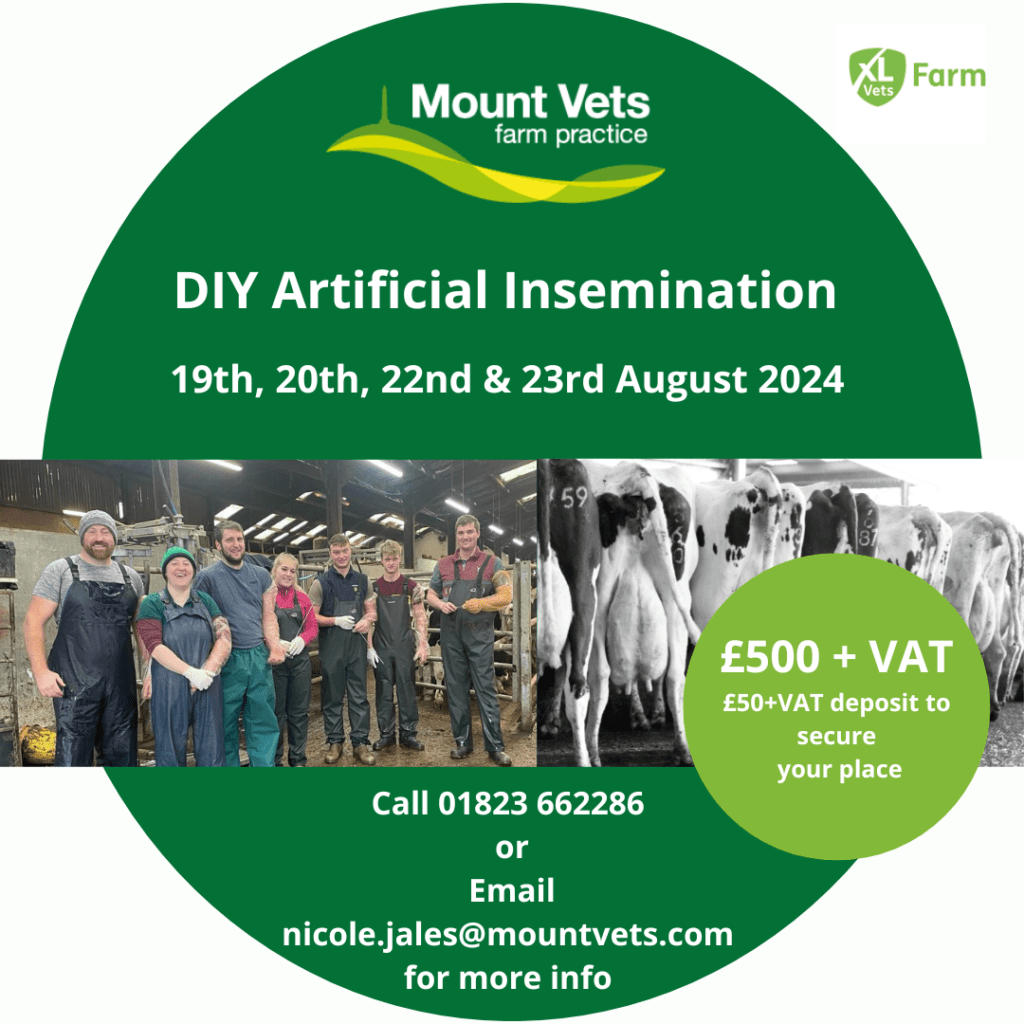
DIY Articial Insemiation Course
Our next 4-day DIY AI course will run on 19th, 20th, 22nd & 23rd August 2024.
This DEFRA approved course is aimed at anyone who has no previous experience in the artificial insemination of cows.
The 4-day course is run by our experienced farm vet Rob Mangham and is full of theory and practical sessions to make sure you leave feeling confident and safe in all aspects of AI.
The cost of the course is £500 + VAT, with a £50+VAT deposit to secure your space.
(Deposit will be taken off final amount)
Please ring the practice to book your place on any of our courses on 01823 662286 or email farm@mountvets.com
Meet the Team!
We have an experienced & friendly team here at Mount Vets. You might already recognise a few faces but over the next few months we will reintroduce you to some of our excellent team. To read more and see more of the faces of Mount Vets visit our team page, and be sure to follow us on Instagram and Facebook.
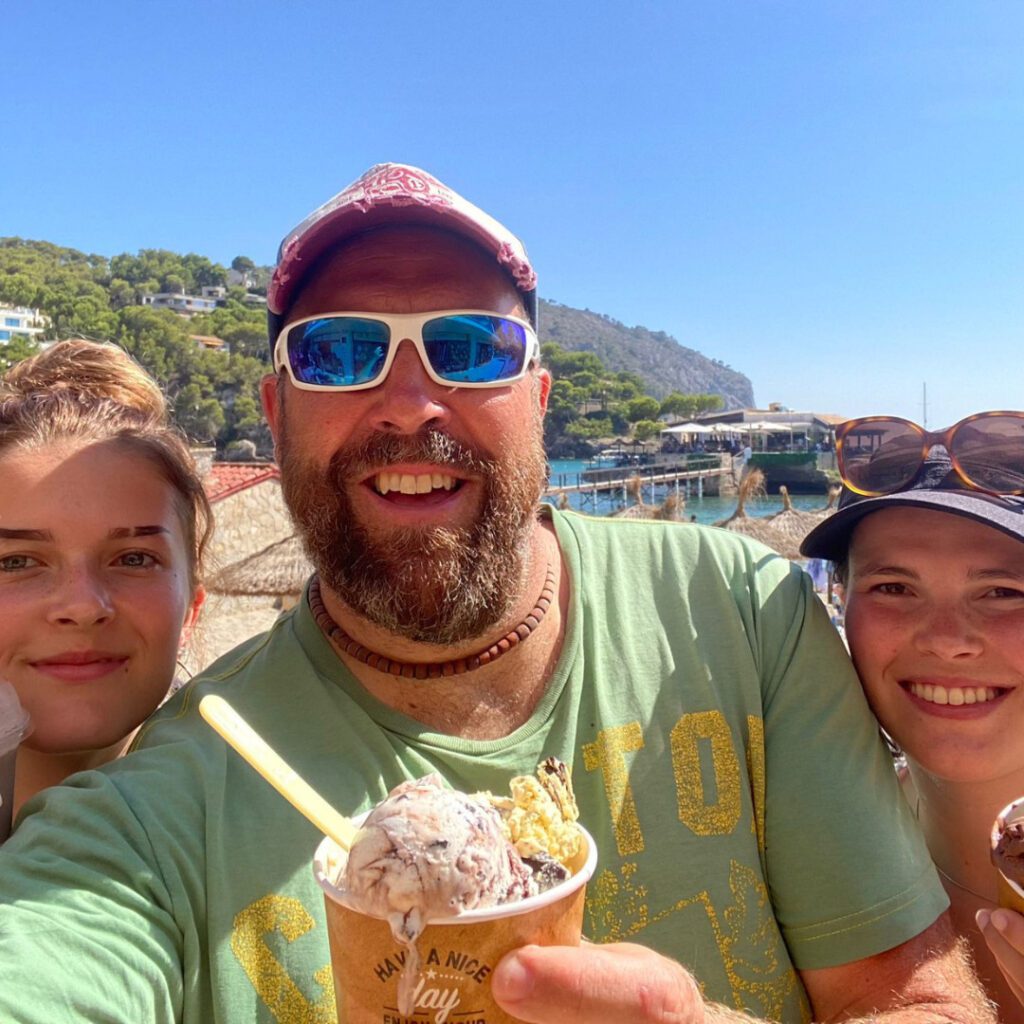
Piers Pepperell
Director
Many of you will already know our Mount Vets Director Piers; but did you know he has appeared on tv show Blind Date with Cilla Black?
Piers loves to spend a free day with his two daughters and three dogs, surfing on the North Devon Coast.
His favourite vet call out was when he was called into the waiting room and unknown to him at the time, but he then met his wife to be. She had brought in her eight baby bunny rabbits, which led on naturally to a 10-minute chat about pig wormers and her asking Piers out on a date.
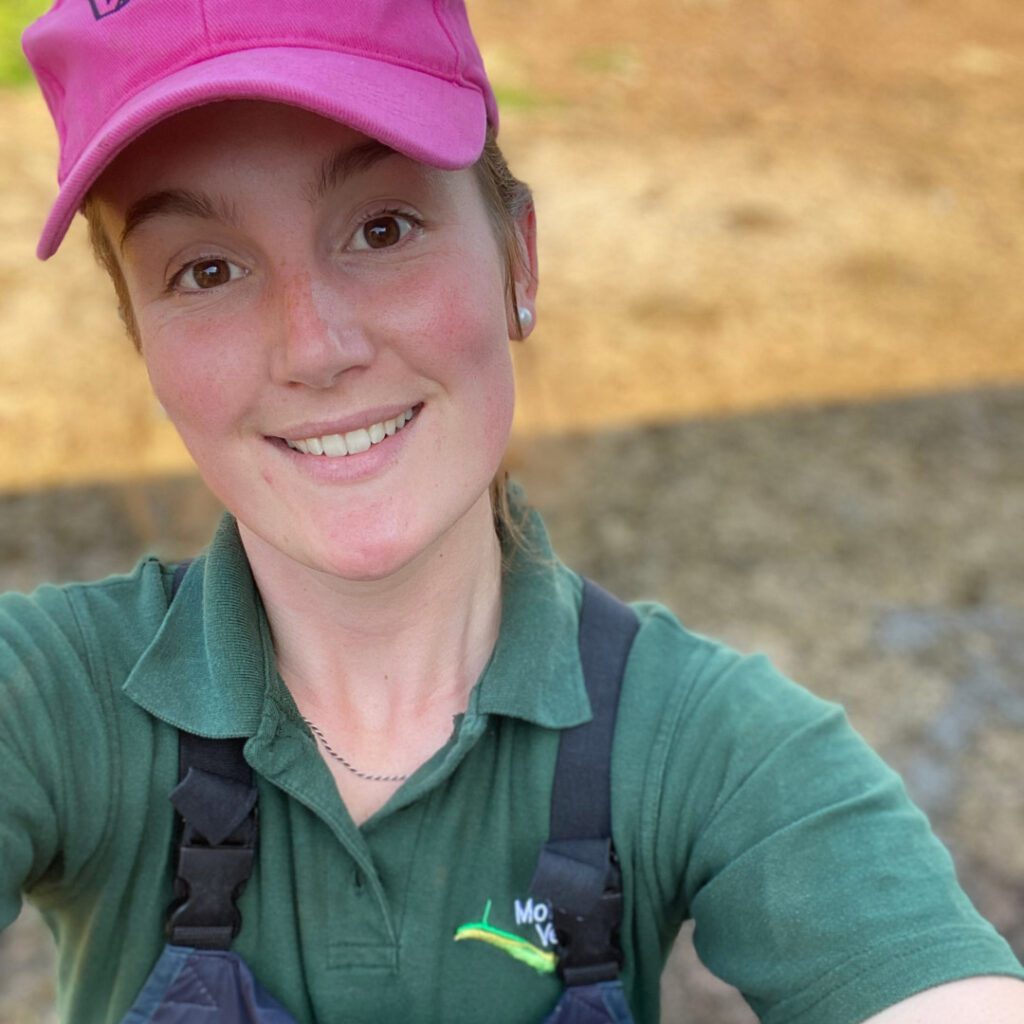
Pip White
Vet
Pip is one of our large animal vets. If you’ve met her, you will probably know how much she loves her cows. So much so, that she loves to spend her free time at home with her cows! That, or in the showring showing them. 🐮
Pip graduated as top student in her year from the University of Surrey.
Her favourite song is Mr Brightside by the Killers.
Have a question about any of the topics covered in this newsletter?
If you need any assistance with the topics covered in this newsletter, please do not hesitate to get in touch with our experienced farm vets who will be able to help. Call 01823 662286, or contact us here.
